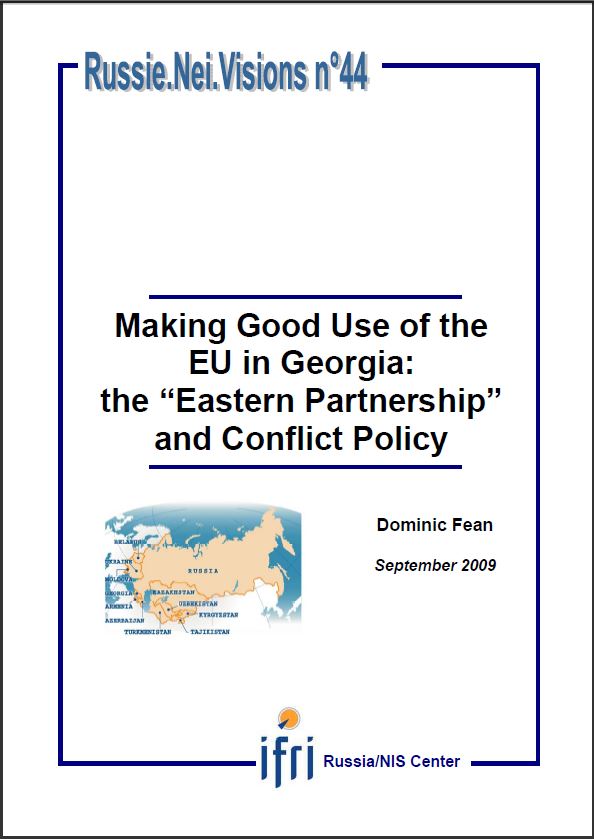Making Good Use of the EU in Georgia: The "Eastern Partnership" and Conflict Policy

After the European Union's intervention in the August 2008 Russo-Georgian war, the EU has stepped up the visibility of its involvement in the South Caucasian state. Its political, economic and manpower engagement is now vital to the country's prosperity and stability. The Eastern Partnership, launched in May 2009, is a further signal of the EU's commitment to the countries on its Eastern borders. However, the new initiative is insufficient to tackle the roots of Georgia's secessionist problems. Indeed, these prove to be more complicated than the Russia vs. Georgia conception that Tbilisi subscribes to. The Union needs to establish a genuine conflict policy to complement the bilateral and multilateral framework of the EaP. Furthermore, the Union's member states need to apply themselves to the EaP's elaboration in order to ensure the project's success; otherwise it risks becoming an empty gesture rather than a viable tool for the development of the EU's partners in the region.
Russie.Nei.Visions is a digital collection of policy papers published in French, English, and Russian by the Russia/NIS Center at Ifri.
Download the full analysis
This page contains only a summary of our work. If you would like to have access to all the information from our research on the subject, you can download the full version in PDF format.
Making Good Use of the EU in Georgia: The "Eastern Partnership" and Conflict Policy
Related centers and programs
Discover our other research centers and programsFind out more
Discover all our analysesRussia's Asia Strategy: Bolstering the Eagle's Eastern Wing
Among Russia’s strategic priorities, Asia traditionally played a secondary role compared to the West. In the mid-1990s, then Foreign Minister Yevgeny Primakov initiated a rapprochement with China and India. Then, in 2014, deteriorating relations between Russia and the West prompted Moscow to begin its “great pivot to the East”.
Kazakhstan After the Double Shock of 2022: Political, Economic and Military Consequences
The year 2022 represented a dual shock for Kazakhstan. In January, the country faced its most severe political crisis since independence, followed in February by Russia’s full-scale invasion of Ukraine, which cast uncertainty over the borders of post-Soviet states. These consecutive crises profoundly shaped Kazakhstan’s domestic and foreign policy.
How the Russian Army Changed its Concept of War, 1993-2022
The traditional and high-intensity war that has occurred in Ukraine since Russia decided to invade raises a key issue: did post-soviet Russian strategic thought really prepare Russia for waging this war?
Russia's Nuclear Deterrence Put to the Test by the War in Ukraine
From the outset of its “special military operation” (SVO) against Ukraine on February 24, 2022, Russia, which possesses one of the world’s largest nuclear arsenals, has adopted aggressive deterrence measures and a resolutely menacing rhetorical stance.










